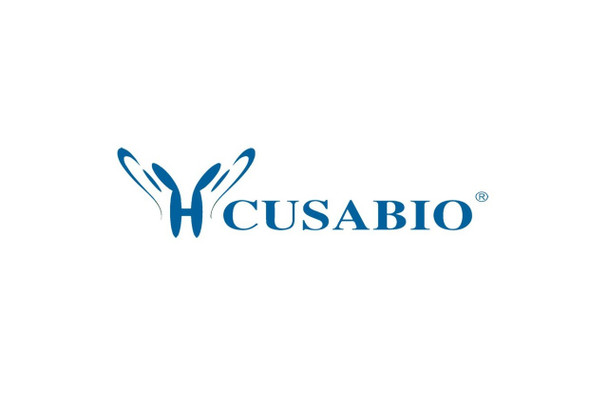Cusabio Human Recombinants
Recombinant Human Corticosteroid 11-beta-dehydrogenase isozyme 1 (HSD11B1), partial | CSB-EP010763HU
- SKU:
- CSB-EP010763HU
- Availability:
- 3 - 7 Working Days
Description
Recombinant Human Corticosteroid 11-beta-dehydrogenase isozyme 1 (HSD11B1), partial | CSB-EP010763HU | Cusabio
Alternative Name(s): 11-beta-hydroxysteroid dehydrogenase 1 ;11-DH ;11-beta-HSD1Short chain dehydrogenase/reductase family 26C member 1
Gene Names: HSD11B1
Research Areas: Cancer
Organism: Homo sapiens (Human)
AA Sequence: EEFRPEMLQGKKVIVTGASKGIGREMAYHLAKMGAHVVVTARSKETLQKVVSHCLELGAASAHYIAGTMEDMTFAEQFVAQAGKLMGGLDMLILNHITNTSLNLFHDDIHHVRKSMEVNFLSYVVLTVAALPMLKQSNGSIVVVSSLAGKVAYPMVAAYSASKFALDGFFSSIRKEYSVSRVNVSITLCVLGLIDTETAMKAVSGIVHMQAAPKEECALEIIKGGALRQEEVYYDSSLWTTLLIRNPCRKILEFLYSTSYNMDRFINK
Source: E.coli
Tag Info: N-terminal 6xHis-SUMO-tagged
Expression Region: 25-292aa
Sequence Info: Partial
MW: 45.5 kDa
Purity: Greater than 90% as determined by SDS-PAGE.
Relevance: Catalyzes reversibly the conversion of cortisol to the inactive metabolite cortisone. Catalyzes reversibly the conversion of 7-ketocholesterol to 7-beta-hydroxycholesterol. In intact cells, the reaction runs only in one direction, from 7-ketocholesterol to 7-beta-hydroxycholesterol .
Reference: The DNA sequence and biological annotation of human chromosome 1.Gregory S.G., Barlow K.F., McLay K.E., Kaul R., Swarbreck D., Dunham A., Scott C.E., Howe K.L., Woodfine K., Spencer C.C.A., Jones M.C., Gillson C., Searle S., Zhou Y., Kokocinski F., McDonald L., Evans R., Phillips K. , Atkinson A., Cooper R., Jones C., Hall R.E., Andrews T.D., Lloyd C., Ainscough R., Almeida J.P., Ambrose K.D., Anderson F., Andrew R.W., Ashwell R.I.S., Aubin K., Babbage A.K., Bagguley C.L., Bailey J., Beasley H., Bethel G., Bird C.P., Bray-Allen S., Brown J.Y., Brown A.J., Buckley D., Burton J., Bye J., Carder C., Chapman J.C., Clark S.Y., Clarke G., Clee C., Cobley V., Collier R.E., Corby N., Coville G.J., Davies J., Deadman R., Dunn M., Earthrowl M., Ellington A.G., Errington H., Frankish A., Frankland J., French L., Garner P., Garnett J., Gay L., Ghori M.R.J., Gibson R., Gilby L.M., Gillett W., Glithero R.J., Grafham D.V., Griffiths C., Griffiths-Jones S., Grocock R., Hammond S., Harrison E.S.I., Hart E., Haugen E., Heath P.D., Holmes S., Holt K., Howden P.J., Hunt A.R., Hunt S.E., Hunter G., Isherwood J., James R., Johnson C., Johnson D., Joy A., Kay M., Kershaw J.K., Kibukawa M., Kimberley A.M., King A., Knights A.J., Lad H., Laird G., Lawlor S., Leongamornlert D.A., Lloyd D.M., Loveland J., Lovell J., Lush M.J., Lyne R., Martin S., Mashreghi-Mohammadi M., Matthews L., Matthews N.S.W., McLaren S., Milne S., Mistry S., Moore M.J.F., Nickerson T., O'Dell C.N., Oliver K., Palmeiri A., Palmer S.A., Parker A., Patel D., Pearce A.V., Peck A.I., Pelan S., Phelps K., Phillimore B.J., Plumb R., Rajan J., Raymond C., Rouse G., Saenphimmachak C., Sehra H.K., Sheridan E., Shownkeen R., Sims S., Skuce C.D., Smith M., Steward C., Subramanian S., Sycamore N., Tracey A., Tromans A., Van Helmond Z., Wall M., Wallis J.M., White S., Whitehead S.L., Wilkinson J.E., Willey D.L., Williams H., Wilming L., Wray P.W., Wu Z., Coulson A., Vaudin M., Sulston J.E., Durbin R.M., Hubbard T., Wooster R., Dunham I., Carter N.P., McVean G., Ross M.T., Harrow J., Olson M.V., Beck S., Rogers J., Bentley D.R.Nature 441:315-321(2006)
Storage: The shelf life is related to many factors, storage state, buffer ingredients, storage temperature and the stability of the protein itself. Generally, the shelf life of liquid form is 6 months at -20?/-80?. The shelf life of lyophilized form is 12 months at -20?/-80?.
Notes: Repeated freezing and thawing is not recommended. Store working aliquots at 4? for up to one week.
Function: Catalyzes reversibly the conversion of cortisol to the inactive metabolite cortisone. Catalyzes reversibly the conversion of 7-ketocholesterol to 7-beta-hydroxycholesterol. In intact cells, the reaction runs only in one direction, from 7-ketocholesterol to 7-beta-hydroxycholesterol (By similarity).
Involvement in disease: Cortisone reductase deficiency 2 (CORTRD2)
Subcellular Location: Endoplasmic reticulum membrane, Single-pass type II membrane protein
Protein Families: Short-chain dehydrogenases/reductases (SDR) family
Tissue Specificity: Widely expressed. Highest expression in liver.
Paythway:
Form: Liquid or Lyophilized powder
Buffer: If the delivery form is liquid, the default storage buffer is Tris/PBS-based buffer, 5%-50% glycerol. If the delivery form is lyophilized powder, the buffer before lyophilization is Tris/PBS-based buffer, 6% Trehalose, pH 8.0.
Reconstitution: We recommend that this vial be briefly centrifuged prior to opening to bring the contents to the bottom. Please reconstitute protein in deionized sterile water to a concentration of 0.1-1.0 mg/mL.We recommend to add 5-50% of glycerol (final concentration) and aliquot for long-term storage at -20?/-80?. Our default final concentration of glycerol is 50%. Customers could use it as reference.
Uniprot ID: P28845
HGNC Database Link: HGNC
UniGene Database Link: UniGene
KEGG Database Link: KEGG
STRING Database Link: STRING
OMIM Database Link: OMIM








![Recombinant Human NADH dehydrogenase [ubiquinone] 1 beta subcomplex subunit 5, mitochondrial (NDUFB5), partial Recombinant Human NADH dehydrogenase [ubiquinone] 1 beta subcomplex subunit 5, mitochondrial (NDUFB5), partial](https://cdn11.bigcommerce.com/s-rvypo0hmzw/images/stencil/590x590/products/2549/4785/cusabio__81676.1638370075__41940.1638524357.jpg?c=1)
![Recombinant Mouse [Pyruvate dehydrogenase [lipoamide]] kinase isozyme 3, mitochondrial (Pdk3), partial Recombinant Mouse [Pyruvate dehydrogenase [lipoamide]] kinase isozyme 3, mitochondrial (Pdk3), partial](https://cdn11.bigcommerce.com/s-rvypo0hmzw/images/stencil/590x590/products/5799/10840/cusabio__81676.1638370075__39659.1638526159.jpg?c=1)